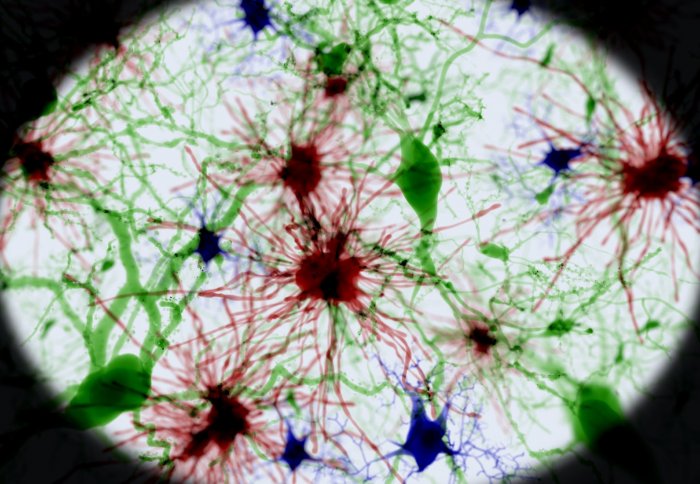World's most in depth study aims to detect early signs of Alzheimer's
by Kerry Noble

A new multimillion pound study will see the most rigorous series of tests to detect Alzheimer's disease ever performed on volunteers.
The Deep and Frequent Phenotyping study is funded by the National Institute of Health Research (NIHR) and the Medical Research Council (MRC) and hopes to dramatically improve the success rate of clinical trials for treatments in Alzheimer’s disease.
The study will be led by the University of Oxford with eight other universities, including Imperial, the Alzheimer’s Society and pharmaceutical companies.
Dr Paresh Malhotra, Clinical Senior Lecturer in Neurology, is the Imperial lead. He said: “This is a major new study which is underpinned by collaboration between centres of excellence in the UK.
“Imperial played a key role in the pilot phase of this study, and it's great that we are also part of the full project because it will provide such a detailed picture of what is happening in the early stages of Alzheimer's Disease.”
This £6.9m research project has been designed to identify measureable characteristics, known as biomarkers, which can detect the occurrence of Alzheimer’s disease very early on in the progression of the disease - when a person may have no obvious symptoms.
Between 2002 and 2012, 99 per cent of clinical trials into treatments for Alzheimer’s disease failed. Researchers believe a reason for the high failure rate is that treatments are being tested on those who already have irreparable damage to the brain.
They believe that treatments will be more effective in slowing or stopping dementia at earlier stages of the disease.
Together, the researchers will perform up to 50 tests on 250 volunteers, including new tests that have never been used before to detect dementia. These will include wearable devices that will give researchers detailed information on people’s movement and gait, and sophisticated retinal imaging that will look at subtle changes affecting a person’s central and peripheral vision.
These potential new biomarkers will be used alone and alongside tests such as brain imaging and assessment of memory and other cognitive functions. They will allow the researchers to recognize the early stages of the disease and those who may be suitable for trials of possible treatments.
An estimated 46.8m people worldwide were living with dementia in 2015, and with an ageing population in most developed countries, predictions suggest this number may double by 2050. Currently, there is no known cure for the disease, and few treatments which are available treat symptoms of the disease, rather than slow or stop its progression.
Dr Rob Buckle, director of science programmes at the MRC, said: “Our goal is to find treatments that can slow down or even stop the progression of Alzheimer’s disease. Finding biomarkers for clinical trials is crucial for fast-tracking decisions as to whether a trial should stop or continue, and the faster we can find out which drugs work and which ones don’t, the faster we can benefit patients.”
Adapted from an MRC press release.
Article supporters
Article text (excluding photos or graphics) © Imperial College London.
Photos and graphics subject to third party copyright used with permission or © Imperial College London.
Reporter
Kerry Noble
Department of Surgery & Cancer